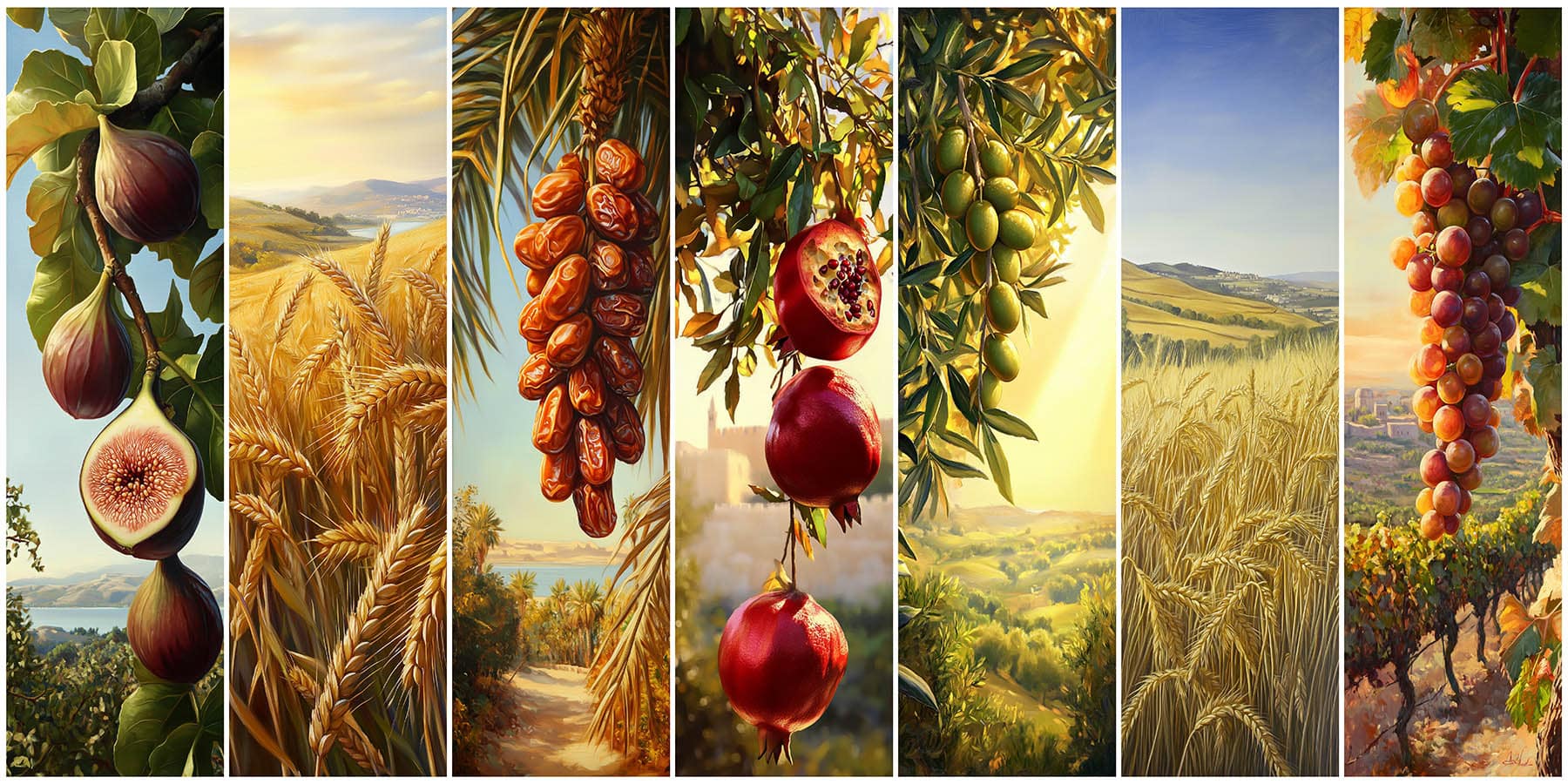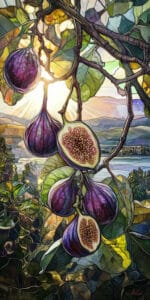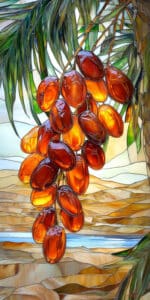
Do you ever find yourself searching for happiness and fulfillment in your daily life? The ancient wisdom of the Torah offers a unique perspective on finding joy through the symbolism of the Seven Species. These seven types of crops have deep spiritual significance and are believed to hold the key to harvesting happiness in our lives. Join us on a journey to uncover the secrets of these sacred plants and discover the true essence of joy.
Uncovering Joy: Exploring the Seven Species of the Torah
Each of the Seven Species mentioned in the Torah – wheat, barley, grapes, figs, pomegranates, olives, and dates – carries its own symbolism and spiritual meaning. Wheat, for example, represents sustenance and nourishment, while grapes symbolize abundance and celebration. By understanding the unique qualities of each species, we can cultivate a deeper appreciation for the blessings in our lives and find joy in even the smallest moments.
As we delve deeper into the significance of each species, we begin to see how they intertwine to create a tapestry of happiness. Just as wheat and barley are essential grains for sustenance, so too are grapes and olives crucial for producing wine and oil, which are often associated with joy and prosperity. By embracing the interconnectedness of these plants, we can learn to appreciate the harmony and balance they bring to our lives, leading to a greater sense of fulfillment and contentment.
The Seven Species not only provide us with physical sustenance but also serve as a reminder of the abundance and blessings that surround us. By incorporating these symbols into our daily lives, whether through food, art, or meditation, we can cultivate a deeper sense of gratitude and joy. As we embrace the wisdom of the Torah and nurture the seeds of happiness within us, we can truly harvest a life filled with peace, love, and fulfillment.
Sowing Seeds of Happiness: A Dive into Ancient Wisdom
The ancient wisdom of the Torah offers a treasure trove of insights into finding joy and contentment in our lives. Just as a farmer sows seeds in the earth, we too can plant the seeds of happiness within ourselves by embracing the teachings of the Seven Species. By aligning ourselves with the spiritual qualities of wheat, barley, grapes, figs, pomegranates, olives, and dates, we can cultivate a sense of abundance, gratitude, and harmony that will bloom into a life filled with happiness.
As we journey through the fields of ancient wisdom, we discover that the key to happiness lies not in external circumstances but in the cultivation of our inner landscape. By tending to the seeds of joy within us, we can nourish our souls and cultivate a sense of peace and contentment that transcends the challenges of daily life. Just as the Seven Species rely on each other for growth and sustenance, so too can we draw upon their wisdom to create a harmonious balance in our own lives, leading to a deeper sense of fulfillment and happiness.
By sowing the seeds of happiness through the symbolism of the Seven Species, we can tap into a wellspring of joy that flows from the depths of our being. As we tend to these seeds with care and intention, we can watch as they grow into a bountiful harvest of love, peace, and fulfillment. The ancient wisdom of the Torah offers us a roadmap to uncovering the true essence of happiness, guiding us on a journey of self-discovery and transformation that leads to a life filled with joy and abundance.
As we reflect on the wisdom of the Seven Species and their profound symbolism, we are reminded that happiness is not a destination but a journey. By embracing the teachings of the Torah and sowing the seeds of joy within us, we can cultivate a life filled with purpose, gratitude, and fulfillment. Let us continue to explore the mysteries of the ancient world and uncover the hidden treasures of happiness that lie within us, waiting to bloom and flourish. Harvesting happiness is not just about reaping the rewards of our labor but about nurturing the seeds of joy that have been planted in our hearts since the beginning of time.








